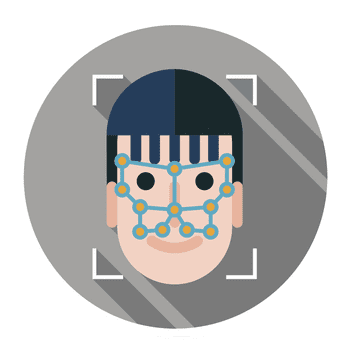Facial acknowledgment is formally prohibited in New York state schools—for the time being.
Gov. Andrew Cuomo on Dec. 22 endorsed into law a bill passed this mid year by the New York state assembly that quickly ends the utilization of biometric distinguishing innovation in schools until at any rate July 2022, and requires the state training office to assess the protection ramifications of the disputable apparatus.
School pioneers who have accepted facial acknowledgment programming point to various prominent shootings lately as proof of a requirement for more powerful security. Yet, considers have discovered the innovation routinely misidentifies ladies and non-white individuals, increasing the danger of that individuals in those gatherings will be focused on and exposed to segregation. A few chiefs of security organizations that work with schools revealed to CNET this year that they don’t figure their items will effectively forestall school shooting occurrences.
Security advocates hailed the entry of the New York law as a genuinely necessary pushback to the fast spread of facial acknowledgment programming, which is generally utilized among police offices and different organizations.
“The ban on biometric reconnaissance is a milestone piece of enactment that should fill in as a public model to stop the expansion of broken, destructive facial acknowledgment advances in schools,” Donna Lieberman, chief head of the New York Civil Liberties Union (NYCLU), said in a proclamation.
The two places of the New York state governing body passed the bill in July, a month after the NYCLU sued the state training division to end the utilization of a facial acknowledgment security framework in the Lockport school area. Records acquired this fall by VICE News demonstrated that SN Technologies, the facial acknowledgment organization working with Lockport schools, deluded the area about the exactness of its product and made light of worries about racial inclination, however the organization emphatically questioned those cases in a long proclamation.
That claim will proceed notwithstanding the law’s section, as per Stefanie Coyle, the NYCLU’s representative instruction chief.
“We’re enormously helped to realize that understudies in Lockport and the remainder of the state won’t be exposed to confront reconnaissance during the ban, yet numerous inquiries stay about the endorsement of this framework and the state’s capacity to viably secure understudy protection,” Coyle disclosed to Education Week in an email articulation.
Michelle Bradley, director of the Lockport locale, said that she’s “significantly frustrated” by the New York enactment. She keeps up that worries about the product don’t matter to the methodology her region is taking, and that the area embraced the product simply after its own thorough survey.
“The District keeps on accepting that its understudies, staff and guests ought not be denied of the extra layer of security given by the District’s facial acknowledgment framework. In any case, the District will, obviously, consent to material law” and add to the state schooling division’s audit, Bradley composed.
Restrictions on the utilization of facial acknowledgment in law requirement have as of late acquired steam, with various urban communities passing comparable laws. Massachusetts this month turned into the principal state to boycott such innovation in policing, however the law passed exclusively after Gov. Charlie Baker encouraged legislators to extricate the limitations on facial acknowledgment for crisis circumstances.
At the government level, Democrats in Congress this mid year presented a bill that would boycott facial acknowledgment in policing from one side of the country to the other. It hasn’t advanced up to this point, yet security advocates are asking the approaching Biden organization to make a more forceful move on facial acknowledgment.
Linnette Attai, leader of PlayWell, a security counseling firm with training customers, said it’s “conceivable—even likely” that extra states one year from now could take up limitations on facial acknowledgment in schools.
